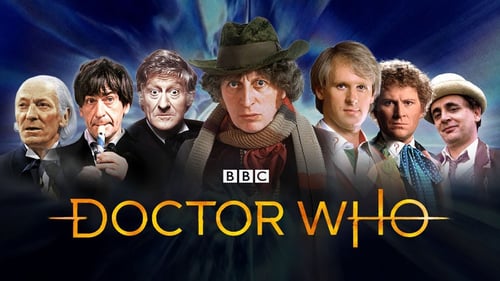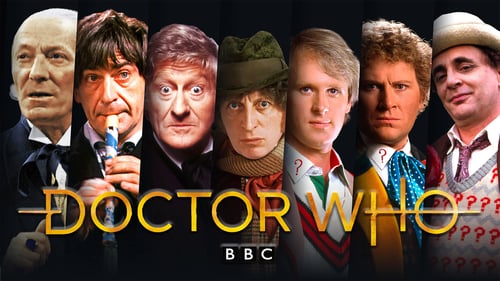Lee Eisenberg
So far I've only seen a few episodes of "Doctor Who". What I've seen impresses me. I interpret the show as a look at how we might respond if suddenly forced into another world (i.e., will we cooperate to do something that helps everyone or will we resort to war?). I also like the idea that the Doctor regenerates (meaning that twelve different people have played him). Admittedly, some of the sets and special effects look dated, but the plot is what matters, and there's plenty of that.The series is one of the favorites of the nerd/geek crowd. The characters on "The Big Bang Theory" reference it, and it's easy to find Comic-Con attendees dressed as the Doctor. It's not my favorite show by any stretch, but I like what I've seen. I recommend it.
bh_tafe3
I guess the only way you can do it is just to go over your own experience with the show. I grew up in Australia, the Australian bush specifically. The first doctor I was old enough to actually appreciate was Slyvester McCoy. I had seen all the Pertwee and Tom Baker episodes as a kid but hadn't taken them in, so my first episode I have any real memory of is Time and the Rani. And I was hooked pretty much from there. As a child of 7, I had no concept of good Doctor Who or bad Doctor Who, or, as I prefer to call them both as a grown adult; "Doctor Who." I just knew he was a Time Lord, from the planet Gallifrey, that he drifted around through time and space in a Police Box and helped people. I didn't care about effects or acting, I just liked the premise.It took about 5 years after the McCoy era ended in 1990 (in Australia) for the show to return, at 4am in the morning, and it was Peter Davison episodes they were showing. Every morning I would get up and watch the show and Davison ended up becoming MY Doctor.I spent a lot of the so called "Wilderness years" watching the old episodes, becoming acquainted with Hartnell's Doctor and re watching some Tom Baker episodes I never really followed as a child. I could see the changing world views on show, from the fear of nuclear destruction in The Daleks to the sympathetic look at Christianity in The Romans, to attacks on consumerism in the Sun Makers and anti-Thatcher sentiments of the Happiness Patrol and the increasing prominence of secular humanism within the show's ideals.I could notice stylistic changes from action oriented in early 70s, to hammer horror influences in the mid 70s, to bonkers Monty Python silliness in the late 70s and then glossy and pessimistic kill fests in the early to mid 80s. I came to admire the way the show changed and adapted as it got older. Season 22 was a disaster, both stylistically and thematically, but it was the only real clunker the show had in its original run which lasted 26 seasons. The key idea that the show had to keep was that the Doctor was an alien with a magic box who flies into a town, finds a problem, fixes said problem, and flies off.I'll list briefly the episodes that I enjoyed the most as a youngling and then take off, probably not having achieved anything apart from indulging myself.Remembrance of the Daleks- First episode I ever watched obsessively. Devious doctor, dalek civil war, creepy little girl, lots of deaths and a satisfying resolution. I hear criticism of this being too continuity heavy. All I will say is I was 8, and had no problems understanding that the daleks were fighting each other over Davros, the doctor had left the hand in a previous incarnation and he had got it from his home planet. Kids really aren't as stupid as some adults seems to think. As Peter Davison later paraphrased "The challenge with writing Doctor Who is keeping it simple enough for the adults to follow, but complicated enough for the kids to stay interested." Deadly Assassin- loved it. Crispy Master. Decadent Gallifrey. Awesome Castellan. Big stakes and Tom Baker at his best. This was another one fans at the time hated because it showed the Time Lords and Gallifrey in a different light to ever before.The Romans- got the VHS in 1996(I think) and loved this one. Ian became one of my favourite companions. Felt like such an epic. Again was criticized for its tone, but out of context it's a fun epic romp.Anyway, that's my personal experience with Doctor Who. Thanks for reading.
J_Leatherwood
While I fully acknowledge that the "traditional" Doctor Who series has endured its ups and downs, I gave it a perfect rating because of its very concept and energy. One character, the time-traveling Doctor, could be interpreted by several different actors in so many different aspects. This ensures a long lifespan for any television show, but the Doctor's space-time travels offer so many story-telling opportunities, regardless of the limited BBC budget or the occasional blooper. Doctor Who began as a BBC family show in 1963, in those days when families -- especially in the UK -- were fortunate to own a single TV set. Most fans consider the classic show in terms of which actor portrayed the Time Lord during which period. When William Hartnell began this role in 1963, no one could have envisioned six other actors playing the same character, until the conceptual introduction of "regeneration" in 1966's "The Tenth Planet." Hence, the Second Doctor, played for three years by Patrick Troughton, has his own "era" of adventures before his regeneration into Jon Pertwee in 1969's "The War Games," and so forth.Unfortunately, many of the episodes of Hartnell and Troughton's tenures were destroyed by the BBC (or stolen in some cases) when their 1960s overseas resale values had expired. Periodically, "lost treasures" have been recovered by the BBC, such as the entire four-part Patrick Troughton story, "Tomb of the Cybermen," located in 1991 at Hong Kong.One of the show's perennial attractions were its monsters and villains, adversaries for the Doctor and his friends. Beginning with the Daleks, those robotic mutants who spawned two films and "Dalekmania," Doctor Who has created its own unique mythology. Cybermen, while similar to the Cybernauts from the original TV Avengers, certainly inspired Star Trek: TNG's well-known Borg Collective. Other alien races have been introduced, as well as the Doctor's renegade arch-enemy, the Master. At various points in the show's history, Doctor Who attempted to grow in terms of maturity, albeit not in the provocative sense of the 2005 BBC-Wales production. In fact, I approve of IMDb's separate category for the newer series, because it bears only topical similarity to the original. Unfortunately for traditional Doctor Who, parental concern over violence (mostly alarmist) and conservative watchdogs like Mary Whitehouse served as a shackle to prevent the show from reaching its logical potential. In comparison to U.S. productions, however, this series seldom ventured beyond PG boundaries of violence. Sexuality rarely entered the picture, even though many of the Doctor's female companions were considered attractive, even glamorous.I am not going to speculate on my favorite Doctors, because I have enjoyed each actor's contributions at various points. I will leave prospective Doctor Who fans to discover their "favorite" Doctors for themselves. But as to general hints, William Hartnell began the role as a stern grandfatherly figure with occasional whimsy, while Patrick Troughton's whimsical wanderings masked an enigmatic intellect. Jon Pertwee's debonair Third Doctor resembled John Steed of the Avengers with perhaps a dash of James Bond, with Pertwee's love of gadgets and cars. Pertwee's era also debuted in color, well-remembered for its contemporary Earth-based format and the UNIT family.After 7 years as the Doctor, Tom Baker became an icon, especially in the United States, where syndication and Public TV brought new fans and convention appearances starting in 1979. Baker's trademark grin and long scarf became famous, as did his off-screen clashes with some directors and producers. But Tom Baker's departure in 1981 marked a great time of trouble for the classic series. Incoming producer John-Nathan Turner would helm the series for its remaining decade, but he would be challenged to retain the show's once-invincible position. Arguably, Turner's removal of Doctor Who from its traditional Saturday tea-time slot caused a decline in viewers. John-Nathan Turner sought to attract famous guest stars, and wanted a well-known actor to play the Fifth Doctor. Previous Doctors had been played by experienced character actors, whilst Tom Baker had been a virtual unknown. Peter Davison, already a television star in England, portrayed a much younger Doctor in a cricket blazer, with more subtle humor and a touch of irascibility. Davison's tenure lasted only three years, before John-Nathan Turner chose Colin Baker, best known for playing villains. Wearing a psychedelic jacket and a cat badge, the Sixth Doctor's crusade for galactic justice was plagued by renewed complaints of violence. After a year's hiatus, Doctor Who seasons were reduced to 14 episodes and four stories, and Colin Baker was unfairly dismissed in 1986 by BBC chief Michael Grade.Doctor Who might have been phased out without a trace, if not for the valiant efforts of Sylvester McCoy, another obscure actor chosen to play the Seventh Doctor. After an uncertain first season, McCoy's portrayal had won over young fans despite some rather weak story lines. However, his last two seasons featured some genuine classic moments. Toward the end, McCoy's portrayal grew more somber and manipulative, even toward his companion, Ace. But when the series finally ended in 1989, the Seventh Doctor's era ended on a high note in "Survival," after the Doctor and Ace outwit the Master for a final victory. One can still take the original series without reading the copious fan-fiction novels that ensued after 1991, or accepting the premises of either the 1996 Telemovie or the new series, which has destroyed or radically altered many of Doctor Who's original concepts. 26 years remains a body of work unto itself, and I believe families can still sit together and enjoy the legend almost 50 years after it began.











